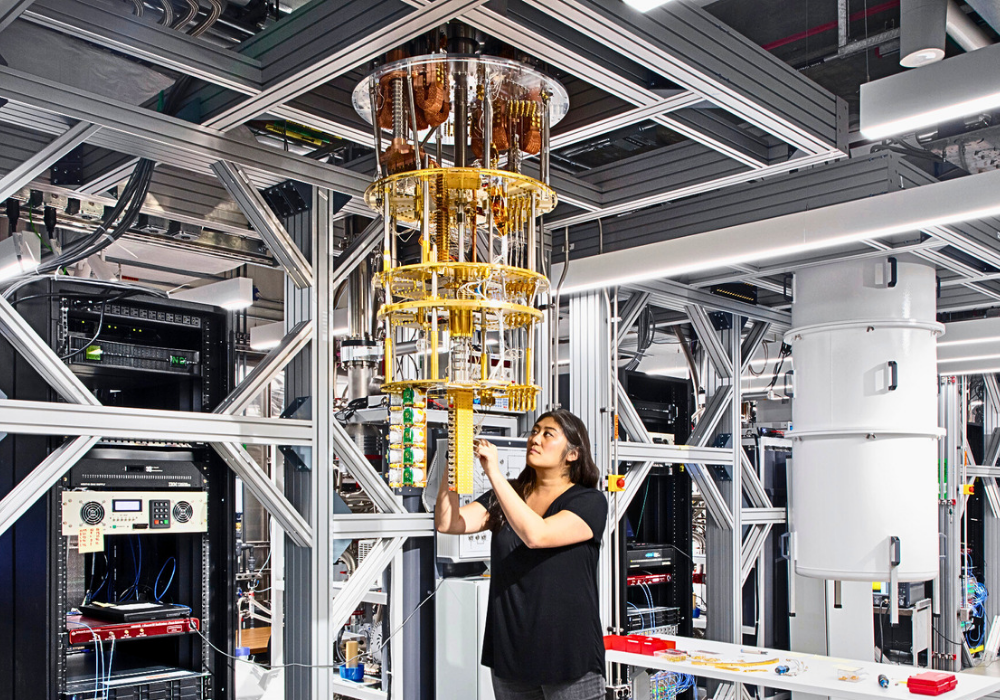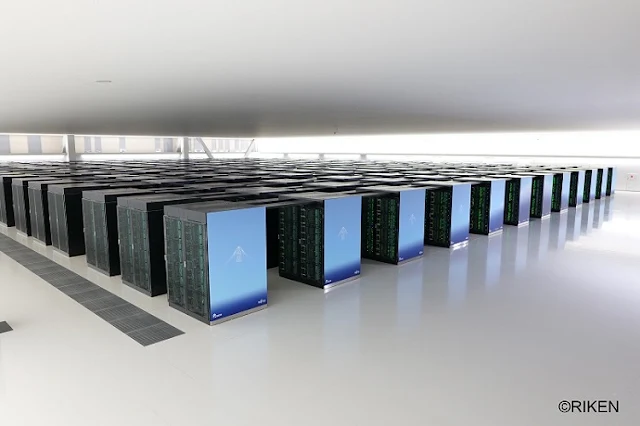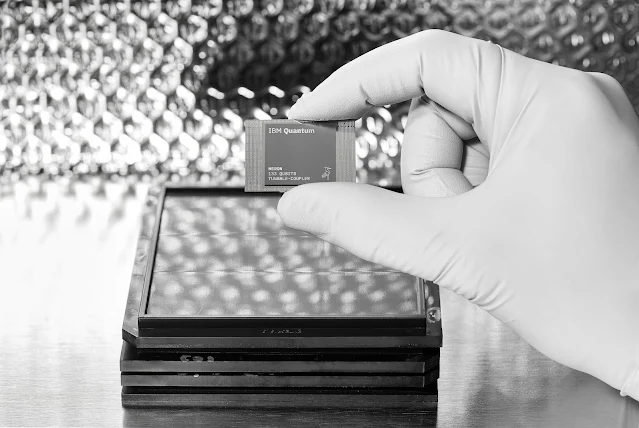
IBM Next-Generation Quantum System to be Integrated With the Supercomputer Fugaku
IBM has announced a significant collaboration with RIKEN, a leading Japanese national research laboratory, to integrate IBM's next-generation quantum system with the supercomputer Fugaku. This integration is set to take place at the RIKEN Center for Computational Science in Kobe, Japan.
The integration marks a significant step towards quantum-centric supercomputing, where quantum and classical computing resources work together. This could revolutionize how computational tasks are approached and solved.
Fugaku is a petascale supercomputer at the RIKEN Center for Computational Science in Kobe, Japan. It was completed in 2021 and is named after an alternative name for Mount Fuji. Fugaku is among the world's fastest supercomputer and is used to solve major challenges, such as researching COVID-19 therapies and providing real-time tsunami predictions.
 |
| Supercomputer Fugaku |
The IBM Quantum System Two, which is IBM's latest quantum computer architecture, will be co-located with Fugaku. This marks the only instance where a quantum computer will be integrated with Fugaku, aiming to accelerate the development of applications for quantum-centric Supercomputing.
This project is part of a larger initiative supported by the New Energy and Industrial Technology Development Organization (NEDO) under Japan’s Ministry of Economy, Trade and Industry (METI). The goal is to demonstrate the benefits of hybrid computational platforms in the post-5G era, potentially revolutionizing science and business in Japan.
IBM Quantum System Two includes an expandable cryogenic infrastructure, modular quantum control electronics, and advanced system software. It's designed to work alongside traditional high-performance computing (HPC) services, embodying IBM's vision for quantum-centric Supercomputing.
This project is part of a larger initiative supported by the New Energy and Industrial Technology Development Organization (NEDO) under Japan’s Ministry of Economy, Trade and Industry (METI). The goal is to demonstrate the benefits of hybrid computational platforms in the post-5G era, potentially revolutionizing science and business in Japan.
IBM Quantum System Two includes an expandable cryogenic infrastructure, modular quantum control electronics, and advanced system software. It's designed to work alongside traditional high-performance computing (HPC) services, embodying IBM's vision for quantum-centric Supercomputing.
The system will be powered by a 133-qubit ‘IBM Quantum Heron’ processor. IBM Heron is the first in a new series of quantum processors with an architecture that delivers the highest performance metrics of any IBM Quantum processor that has been released, to date. Now available to users via the cloud, experiments on IBM Heron also had the lowest error rates of any IBM Quantum processor, offering a five-fold improvement over the previous best records set by IBM Eagle.
Moreover, IBM plans to develop a software stack dedicated to generating and executing integrated quantum-classical workflows within a heterogeneous quantum-HPC hybrid computing environment. These advancements are expected to deliver improvements in algorithm quality and execution times.
Moreover, IBM plans to develop a software stack dedicated to generating and executing integrated quantum-classical workflows within a heterogeneous quantum-HPC hybrid computing environment. These advancements are expected to deliver improvements in algorithm quality and execution times.
The deployment of IBM Quantum System Two at RIKEN and its integration with Fugaku represents a significant step towards the future of quantum-centric supercomputing, where quantum and classical computing resources work in tandem to tackle computations beyond current capabilities.
The hybrid system will combine the strengths of quantum computing with those of classical supercomputing, leading to unprecedented computational capabilities. This will enable researchers to tackle complex problems that were previously beyond reach.
To recall, in last month NVIDIA announced that it has been working on quantum accelerated supercomputing, which leverages quantum processing units (QPUs) to perform quantum computing tasks alongside traditional supercomputing infrastructures.
With this integration of quantum computing +Supercomputer, Fields such as materials science, drug discovery, and climate modeling could benefit greatly from the enhanced computational power, potentially leading to breakthroughs in these areas
In addition, the IBM & RIKEN project involves collaboration with other institutions like the University of Tokyo and Osaka University, fostering a collaborative environment that could accelerate innovation and discovery.
Overall, the integration of IBM's Quantum System Two with Fugaku is expected to open up new horizons in scientific research, enabling researchers to explore and solve complex problems with greater efficiency and precision.
Besides this, Japan's National Institute of Advanced Industrial Science and Technology has also integrated quantum computing with a supercomputer. The institute has deployed ABCI-Q, one of the largest supercomputers dedicated to research in quantum computing. This system expands the ecosystem for hybrid quantum-classical computing.









 IndianWeb2.com is an independent digital media platform for business, entrepreneurship, science, technology, startups, gadgets and climate change news & reviews.
IndianWeb2.com is an independent digital media platform for business, entrepreneurship, science, technology, startups, gadgets and climate change news & reviews.
No comments
Post a Comment